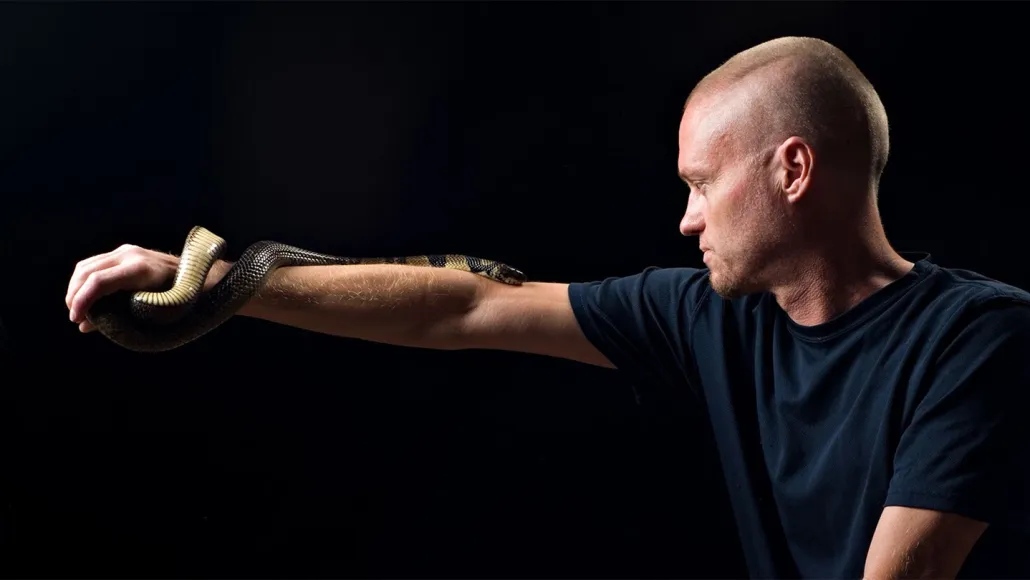
The first was from an Egyptian cobra. The second, an hour later, from a monocled cobra. Both bites occurred at his home in Wisconsin. Both were from highly venomous snakes. Neither bite was an accident. For nearly two decades, Tim Friede turned his body into a testing ground.
Friede let the cobras bite him on purpose — now, he’s logged 202 snakebites, in total. “It always burns and it’s always, always painful,” he says. After the back-to-back cobra bites, Friede had to be airlifted to the hospital and spent four days in a coma. “Was it a mistake? Yes. Was it stupid? Yes,” he says. But he’s in it for the science.
For nearly 20 years, Friede has “self-immunized” against venom from some of the world’s deadliest snakes. The process involved milking venom from snakes and then injecting tiny — followed by increasingly larger — doses into his body.

Photo: Centivax
Think The Princess Bride, says Jacob Glanville, president and CEO of the biotech company Centivax. In the movie, Westley built up immunity to the poisonous (and fictional) iocane powder by gradually exposing himself to it over time. That’s essentially what Friede did, Glanville says. Without that slow buildup, bites by “most of those snakes would have killed him,” Glanville says.
But Friede survived. That’s because he’s got what may be a one-of-a-kind assortment of antibodies cruising through his bloodstream.
According to the World Health Organization, venomous snakebites kill up to about 140,000 people each year.
What's the Science?
Centivax, which is working to develop a universal flu vaccine, was interested in other examples where broad immunity might be useful in medicine. Snakebites immediately came to mind. Glanville thought Friede, someone who'd been bitten multiple times by multiple snakes, could help.
Glanville contacted Friede after reading about him in the news. “I said, ‘This might be an awkward question, but I would really like to get some of your blood.’” Friede responded, “I have been waiting so long for this call.” He had been involved in small studies before, but many of them weren't published and other projects just didn't go anywhere. Glanville’s did.
A combination of just two of Friede's antibodies plus a toxin-blocking drug called Varespladib completely protected mice from an otherwise lethal dose of venom from 13 different kinds of snakes, and partially protected mice from the venom of an additional six species.
The newly developed antivenom cocktail targets three of about 10 toxin families that are key targets for antivenoms. The researchers are looking to move on to the next phase of testing, and collaborate with veterinary groups in Australia to treat dogs that come in with snakebites.
“Tim did something remarkable, and we think it could change medicine,” Glanville says. But he emphasizes that no one should be injecting themselves with snake venom. “We are actively discouraging anybody from trying it,” he says. “No one ever needs to do it again.”


